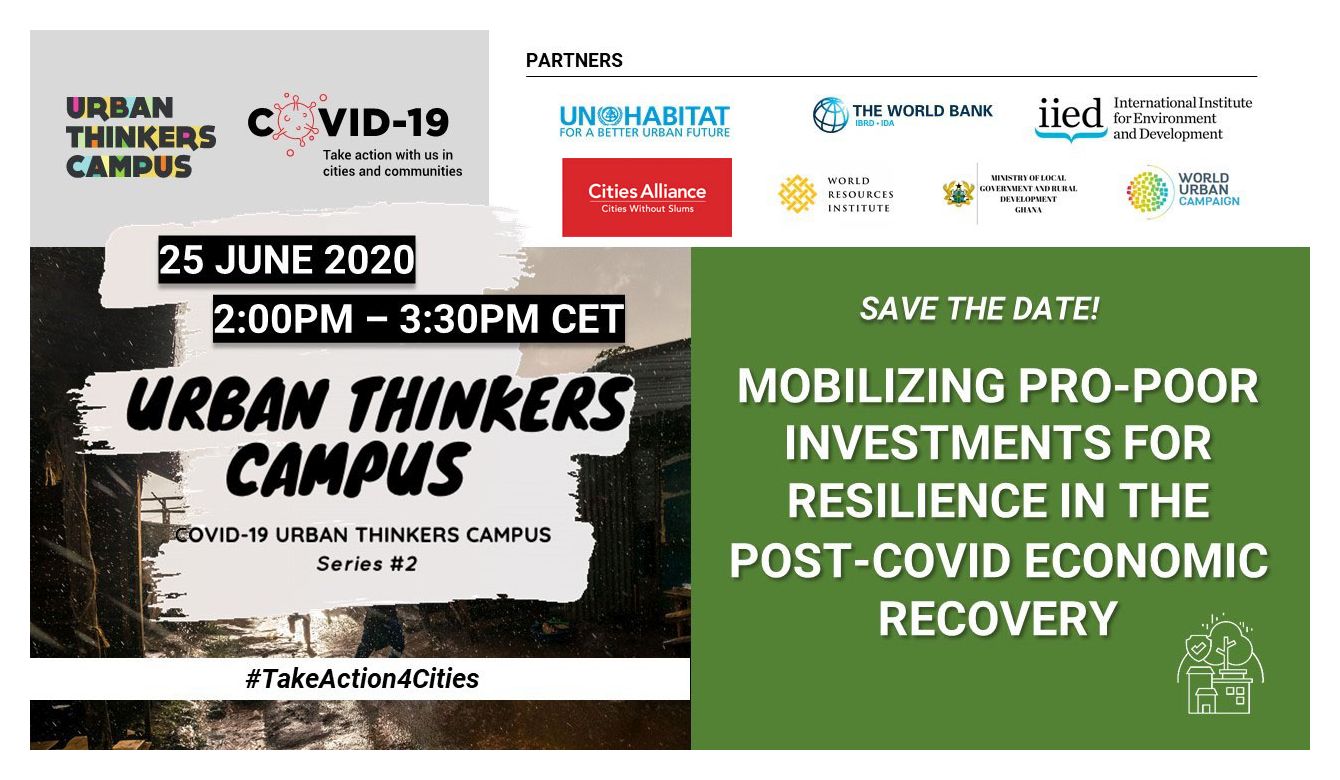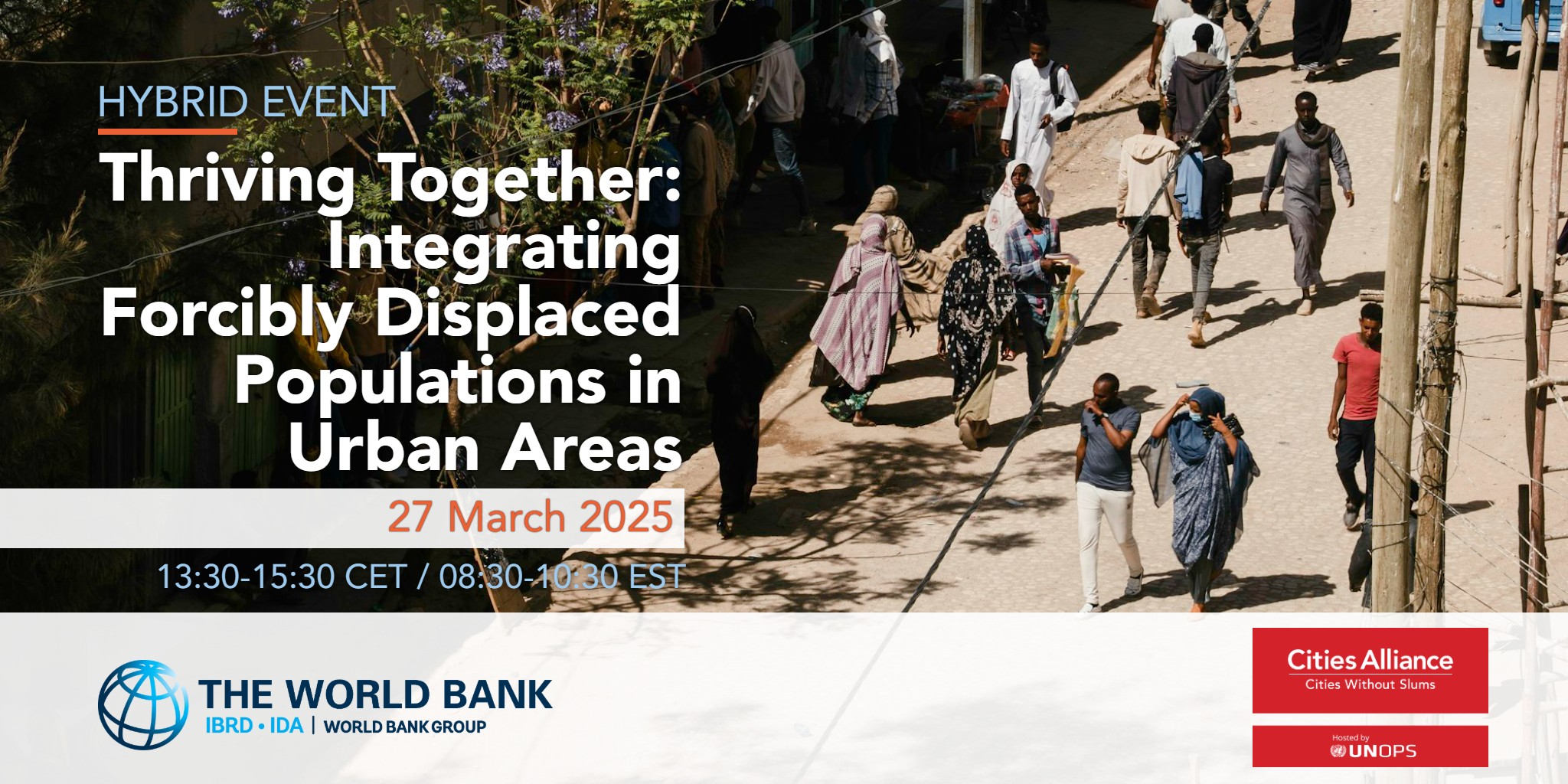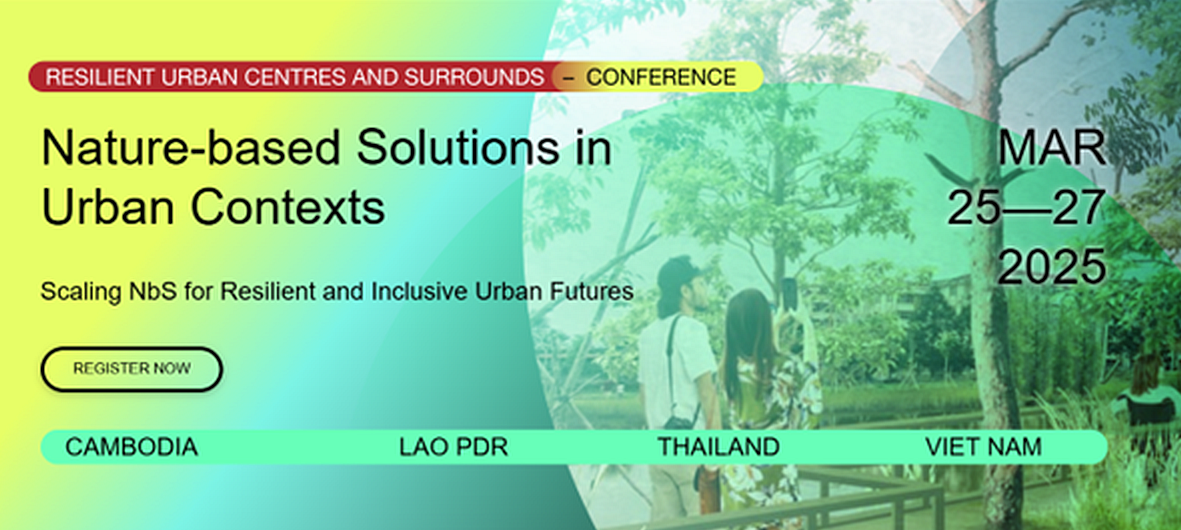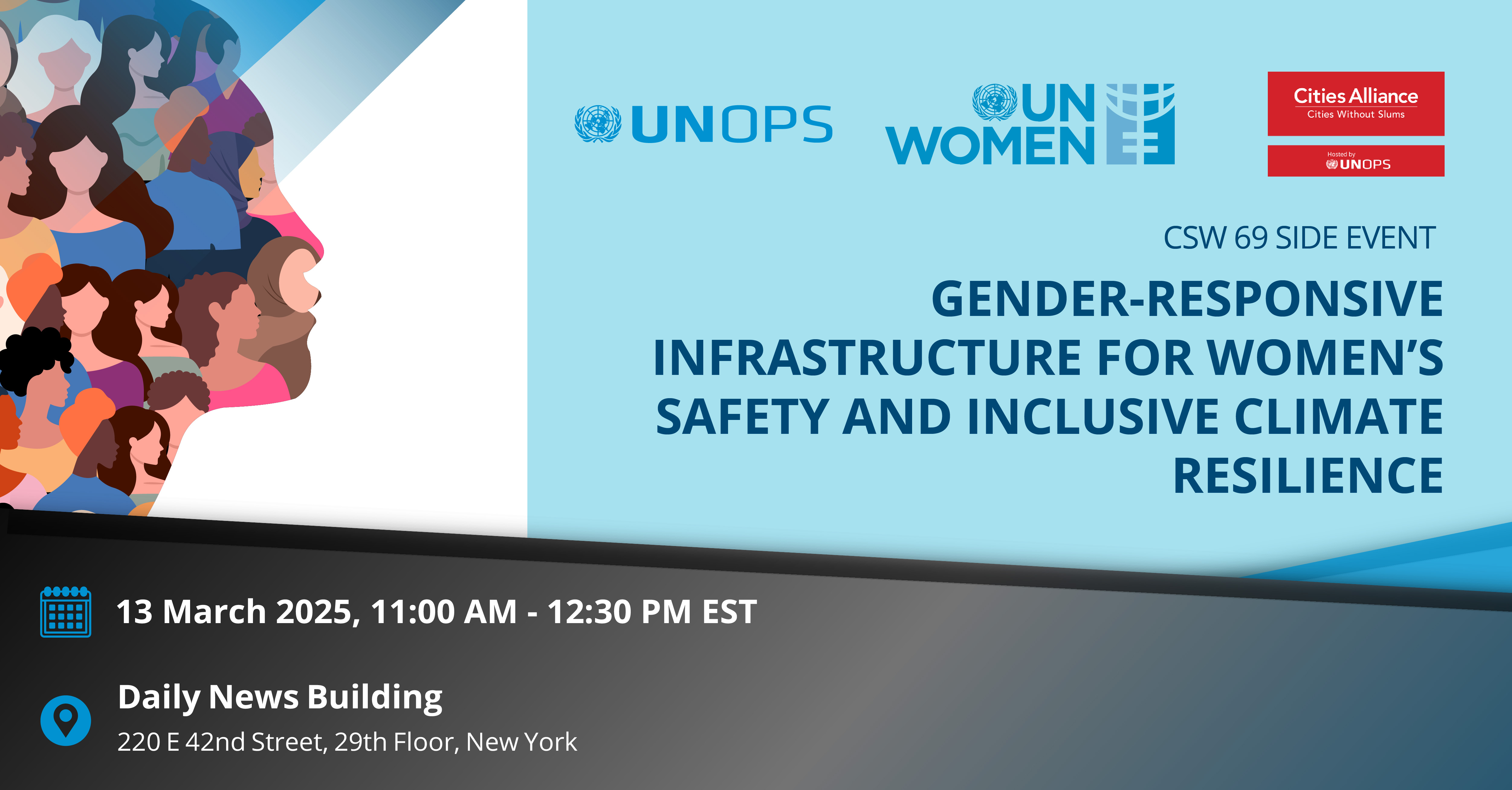- Who We Are
- How We Work
- Regional / Country Initiatives
- Legacy
- Core Themes
- Working Groups
- Portfolio & Results
- Newsroom
- Resources
Mobilizing Pro-Poor Investments for Adaptation & Resilience in the Post-COVID Economic Recovery

Urban Thinkers Campus Series with UN Habitat
Urban Thinkers Campus Series
Mobilizing Pro-Poor Investments for Adaptation & Resilience in the Post-COVID Economic Recovery
Webinar on 25 June 2020, 14:00 – 15:30 CET Join using this link
The current COVID-19 crisis is showing the importance of city resilience and local responses to global problems. Pandemic and Climate vulnerabilities seem to interline at the local level. Early indications suggest low-income groups and informal settlements are at high risk of COVID-19 outbreaks, due to the lack of WASH services, overcrowding and poor air ventilation. On top of that, such populations tend to be the most vulnerable to COVID-19 caused economic disruptions.
Globally, governments try to stimulate a ‘post-COVID’ economic recovery, and many voices suggest this to be an opportunity for countries to (re-) focus on core investments towards infrastructure and service delivery, fast-tracking a green and resilient transition. It is clear that governments are open to, or actively looking for, solutions to maintain and create jobs and invest in low-carbon and resilient transition, in line with a ‘build back better’ approach.
The main objective of this session organized by UN Habitat, is to bring together experts to reflect on potential solutions for a enabling recovery packages to be both pro-poor and climate-proof. The main focus will be set towards the multiple avenues that could be explored to realize such integration.
Guiding questions:
- What can the international community do to ensure that economic stimulus packages favor, or prioritize, transition to a more climate-friendly and resilient economy?
- How can we ensure relevant investments are channeled to cities and urban areas, being the economic hubs everywhere.
- How can we favor investments in adaptation and resilience of communities and infrastructure, given the historic low representation in climate and development finance?
- What is the role of the urban poor in this? Are the avenues and options for the most vulnerable to facilitate investments.
- How do you see the role of your organization, and how we can work together to move this line-of-thought forward?
Find more information on the Urban Campus Thinkers website




